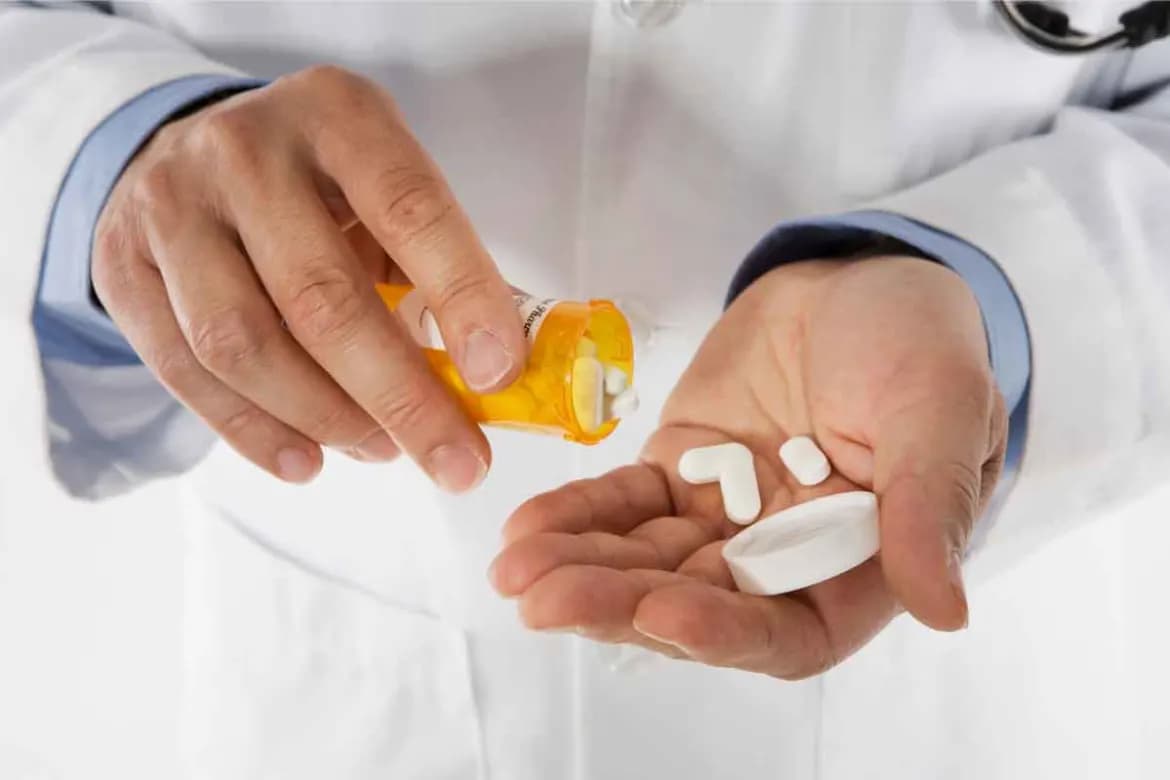Dual Diagnosis Treatment Centers in Hawaii
If you are facing challenges related to mental health conditions and substance use disorders, we are here to help. At Hawaii Island Recovery in Kailua-Kona, HI, our dedicated team provides dual diagnosis treatment services within our residential recovery programs, specifically designed for individuals dealing with both mental health issues and substance use disorders.
Get Help Today
What Is Dual Diagnosis?

Dual diagnosis is a clinical term used to describe a condition where an individual has been diagnosed with one or more mental health conditions and a substance abuse disorder (SUD) simultaneously. Any diagnosed mental health disorder alongside a simultaneous alcohol or drug addiction can be classified as dual diagnosis. Dual diagnosis typically demands a unique treatment program and personalized treatment approaches to address.
The term “dual diagnosis” was first identified in the 1980s. Today, however, the term has been updated, and the new terminology for dual diagnosis is now “co-occurring disorders” (COD). According to the Substance Abuse and Mental Health Services Administration (SAMHSA), CODs affect people of all ages from many different backgrounds. These illnesses can be severe and recurrent.
Having co-occurring disorders is a common occurrence among people suffering from drug and alcohol use disorders. MedlinePlus states that about 50% of the people with SUD will also have a mental health disorder at some point during their lifetimes.
This complex interplay between addiction and mental health disorders can complicate the addiction treatment process and require a specialized approach to effectively address both aspects of the patient’s well-being. The significance of dual diagnosis lies in the fact that each condition can influence and exacerbate the other—leading to a cycle of dependency and poor mental health outcomes.
Individuals with co-occurring disorders must receive an integrated and comprehensive dual diagnosis treatment that addresses both the addiction and the mental health disorder concurrently. This is important for the patients to have a better chance of achieving sustainable improvements, maintaining long-term sobriety, developing effective relapse prevention, and improving their mental health and quality of life.
Common Co-Occurring Disorders

According to the National Alliance on Mental Illness (NAMI), in 2019, it was estimated that approximately 9.5 million (3.8%) people experienced both a mental illness and a SUD.
An influential factor to this lies in the possibility that individuals with a mental health disorder may turn to substances as a way to self-medicate or cope with their symptoms—leading to the development of drug or alcohol addiction. Conversely, substance use can also trigger or exacerbate symptoms of mental illness, creating a cycle of dependency and worsening mental health outcomes.
Common mental health disorders among those diagnosed with CODs include:
- Post-traumatic stress disorder (PTSD): A severe, trauma-induced mental disorder
- Attention-deficit/hyperactivity disorder (ADHD): A brain-based developmental disorder described as constant or persistent symptoms of inattention, hyperactivity, impulsiveness, distraction, and/or forgetfulness
- Bipolar disorder: A mental disorder characterized by drastic shifts in mood, energy levels, activity, and focus
- Schizophrenia: A mental disorder that presents itself as a breakdown in thoughts, emotions, behaviors, and reality
- Major depressive disorders: A persistent and long-term depressed mood
- Anxiety disorder: Characterized by overwhelming feelings of worry, fear, and unease
Individuals experiencing the above mental health disorders might often abuse substances such as:
- Prescription drugs
- Marijuana
- Opioid
- Alcohol
- Hallucinogen
The Correlation Between SUD and Mental Illness

Even though the co-occurrence of substance use disorder and mental health conditions is extremely common, having one of them does not automatically cause the other. However, while there is no direct link, a variety of factors may contribute to their co-occurrence and the need of our dual diagnosis treatment centers in Hawaii. Among them are:
- Family History: Genetics can be a contributing factor to both mental health disorders and addictive behaviors.
- Stress: Stress is known to be a risk factor in the development of drug and alcohol substance abuse.
- Trauma: Traumatic events and experiences leading to post-traumatic stress disorder can also lead to mental health conditions and substance abuse.
If any of these three areas leads an individual to a mental health challenge or disorder, those suffering may turn to drugs and alcohol to self-medicate. Likewise, if any one of these three areas leads to an SUD, an individual’s brain chemistry can be affected in such a way that it could lead to a mental health episode or disorder, both affecting a person’s overall health and wellness.
Warning Signs for Co-Occurring Disorders

According to previously cited statistics by NAMI, over 90 million adults in the U.S. have experienced mental illness. As outlined above, many of these individuals may turn to drugs or alcohol to help self-medicate.
While mental illness can present differently in each individual, the signs and symptoms that someone you know may be experiencing a mental health condition include:
- Suicidal ideation
- Increase or decrease in appetite
- Difficulty with concentration or focus
- Feelings of self-loathing or low self-worth
- Withdrawal from family, friends, or activities
- Changes in sleep patterns
- Mood swings and irritability
If you have a mental health condition and suffer from a SUD, warning signs of this COD can include the following:
- Homelessness
- Aggressive or reckless behavior
- Continued abuse of drugs or alcohol
- Difficulty staying employed
- Trouble maintaining relationships
What Is Dual Diagnosis Treatment?

Our dual diagnosis treatment center in Hawaii provides medical care services to meet the needs of and heal or manage the mental health disorder and the SUD, each separately but simultaneously.
According to a SAMHSA study, dual diagnosis treatments should include essential services that are “person-centered, trauma-informed, culturally responsive, recovery-oriented, comprehensive, and continuously offered across all levels of care and disease course.”
Medication-assisted treatment (MAT) is a common pharmacotherapy treatment for dual diagnosis patients. MAT is the use of medication in conjunction with evidence-based therapies, holistic treatments, and counseling to treat substance abuse. Dual diagnosis treatment also typically crosses a variety of different programs, and is much more than just a detox program. Residential treatment at a treatment facility for alcohol and drug rehab, alongside group therapy, mental health care, and transitioning to an intensive outpatient program (IOP) or outpatient treatment can all help to maintain effective changes first explored at a rehab center.
Mental health treatment and an addiction treatment program is not something that is “completed.” However, they are still a necessary part of effective healing, blending each of these stages of healing at an addiction treatment center with both evidence-based therapies and holistic treatment options.
What Are the Benefits of Dual Diagnosis Treatment Centers in Hawaii?

Research and study data regarding dual diagnosis treatment suggest that individuals suffering from the COD of mental illness and a SUD face greater consequences of drug and alcohol use.
These consequences could include:
- Greater exacerbation of psychiatric symptoms
- Medication nonadherence
- Increase in aggressive and violent behaviors
- Poor hygiene
- Emergency room visits
- Inpatient psychiatric placements
- Elevated risk of self-harm
Dual diagnosis requires a specialized and holistic approach to effectively address both aspects concurrently. By integrating treatment modalities that cater to both the mental health condition and addiction issue, dual diagnosis treatment offers a comprehensive recovery plan that delves into the underlying causes of the co-occurring conditions. This approach enables individuals to receive personalized care that considers the interconnected nature of their mental health and addiction struggles.
One key advantage of dual diagnosis treatment is the collaboration between mental health professionals and addiction specialists to create a tailored program that draws from various therapeutic techniques. This collaborative effort often includes MAT, evidence-based therapies, experiential programming, and other holistic approaches to provide individuals with a well-rounded and effective treatment plan. Family therapy programs and aftercare programs are also common to facilitate continued healing at home after graduating from one of our dual diagnosis treatment centers in Hawaii.
By addressing the complexities and individual needs of both mental health and addiction issues simultaneously, dual diagnosis treatment aims to not only manage symptoms but also facilitate long-term recovery and healing for individuals facing these challenges.
Dual Diagnosis Treatment Programs in Hawaii
At Hawaii Island Recovery, we offer evidence-based therapies as part of your recovery plan to help treat COD. We use a comprehensive approach to treat your mental health condition and SUD separately but simultaneously.
Our therapies include:
- Cognitive Behavioral Therapy (CBT)
- Rational Emotive Behavior Therapy (REBT)
- Dialectical Behavior Therapy (DBT)
- Eye Movement Desensitization and Reprocessing (EMDR)
- Neurofeedback
- Neurolinguistic Programming (NLP)
- Emotional Freedom Technique (EFT)
At our Hawaii substance abuse treatment centers, we provide dual diagnosis treatments to manage and heal the co-occurring disorders of mental health and substance use disorders. If you or a loved one is suffering from a dual diagnosis, call Hawaii Island Recovery today at (888) 713-6745 to learn more.
Frequently Asked Questions (FAQs)
Get Help Today! | Hawaii Island Recovery
Call Hawaii Island Recovery toll-free right now if you or a loved one needs help.
888-713-6745 Hawaii Island Recovery
Hawaii Island Recovery 









